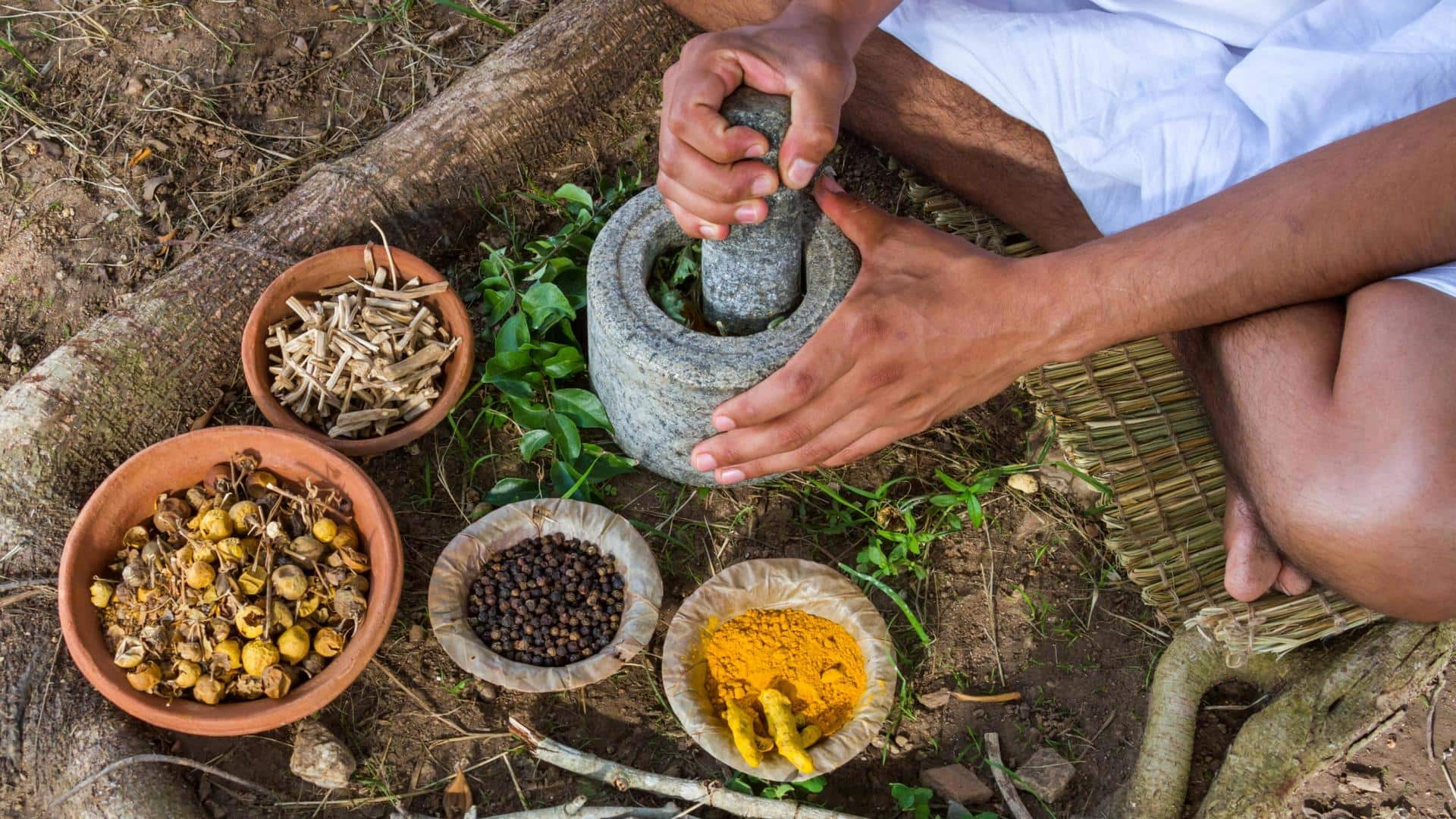
Myths about Ayurveda that you shouldn't believe
What's the story
Ayurveda is an ancient medicine system native to India.
Despite being 5,000 years old, even today it is used as a healing practice to help people steer clear of many diseases.
While many products of Ayurveda are a part of our household for generations, it is still surrounded by multiple misconceptions owing to the lack of awareness.
Let's bust the five most common ones.
Myth 1
Myth: Ayurvedic treatment is absolutely harmless
Wrong! All medicines, whether modern or ayurvedic, come with side effects if not taken as prescribed.
One should never indulge in self-diagnosis or self-treatment and should instead consult an ayurvedic doctor for a better (and safer!) direction.
Any imbalance in an ayurvedic treatment too can do more harm than good, which is why it is a myth that it is harmless.
Myth 2
Myth: Only vegetarians can undergo ayurvedic treatment
Don't worry, you won't be asked to bid adieu to your favorite meats when seeking an ayurvedic treatment.
Although Ayurveda calls meat and some vegetables like onions and garlic tamasic food, one can still consume them without any hassle.
Many ayurvedic doctors may recommend their consumption, which makes it a treatment fit for all irrespective of your choice of protein.
Myth 3
Myth: Ayurveda only uses herbs
Ayurvedic medicines feature herbs and many other non-herbal products as well.
From milk, honey, and ghee to various kinds of rock salts, myriad ingredients are used to prepare remedies.
This also brings us to a subset of this myth - "Anything herbal is ayurvedic," which is also false as herbs are also used in various medicines that are not ayurvedic.
Myth 4
Myth: Ayurvedic treatment takes longer to work
This is among the most common myths.
Ayurveda may take time to treat your condition as it works on the roots of your ailment to eliminate them from your system so that it doesn't recur.
However, ayurvedic or modern, no medicine on this planet can help cure you instantly, which is why we have to follow a course prescribed by a doctor.
Myth 5
Myth: Ayurveda is an outdated system
Ancient but not outdated! Ayurveda is at least 5,000 years old and is continued as a legal practice even today.
Factually, its popularity increased especially during the COVID-19 pandemic when people started consuming kadha made with turmeric, cinnamon, tulsi, giloy, cloves, etc.
And not just in India, people from across the globe have accepted it far and wide.